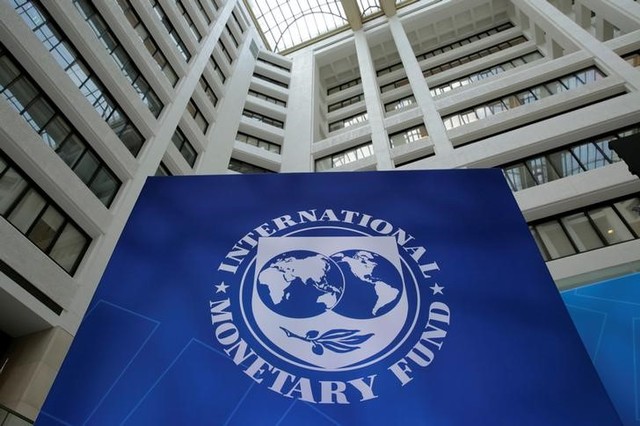Zimbabwe to Launch IMF-Backed Debt Clearance and Economic Reforms in 2025, Aims to Protect Vulnerable Populations
The IMF programme marks a significant milestone in Zimbabwe’s efforts to clear its arrears and resolve its public debt.

Zimbabwe is set to accelerate its debt clearance and economic reform process with the approval of a staff-monitored programme (SMP) with the International Monetary Fund (IMF), starting in January 2025. The move comes after nearly two years of dialogues with development partners and is a critical step in resolving the country's $21 billion public debt.
At the 6th Structural Dialogue held in Harare, President Dr Emmerson Mnangagwa expressed his strong support for the IMF-backed programme, emphasizing the importance of protecting vulnerable groups in the face of economic reforms. He stressed that these groups must be safeguarded through effective social protection programs, a critical aspect of Zimbabwe’s reform agenda.
“We must ensure that those who are most vulnerable are protected as we move forward with these economic reforms. This is a top priority for my government,” said President Mnangagwa, addressing key stakeholders including creditors, development partners, the private sector, civil society organizations, and farmers’ associations.
A Milestone for Debt Resolution and Reforms
The IMF programme marks a significant milestone in Zimbabwe’s efforts to clear its arrears and resolve its public debt. Dr. Akinwumi Adesina, President of the African Development Bank (AfDB) and Champion of the Debt Resolution Process, hailed the programme as an important step in ensuring fiscal space for Zimbabwe to implement the necessary reforms.
“This programme will be crucial in providing the financial space Zimbabwe needs to carry out its reforms and protect vulnerable populations during this transition,” Adesina stated.
Zimbabwe’s reform agenda includes major steps toward economic stabilization, improved governance, and investor confidence. These include the introduction of a new local currency, the establishment of a more flexible and transparent foreign exchange market, and the passing of new parliamentary bills aimed at strengthening the country’s fight against corruption.
Land Reforms and Compensation Initiatives
Among the more significant reforms is a landmark $35 million compensation package for over 400 farmers who were affected by land redistribution programs in the 1990s. In a bid to bolster investor confidence, the Zimbabwe government is also implementing extensive land tenure reforms. These reforms will allow for more secure and transferable land titles for beneficiaries of the 99-year leases under the land reform program.
President Mnangagwa highlighted these efforts, emphasizing the importance of an inclusive and transparent process to ensure that Zimbabwe’s land resources are managed effectively and equitably.
Progress and Challenges of the Dialogue Process
Reflecting on the two-year debt resolution dialogue, Adesina remarked, “We have made more progress in two years than in the prior 21 years since sanctions were imposed on Zimbabwe.” The process, which is led by the African Development Bank and supported by international partners, has been praised for its structured and inclusive approach, providing a platform for all stakeholders to contribute to the national reform agenda.
Former Mozambican President, Joaquim Chissano, who serves as the high-level facilitator of the debt resolution process, reiterated the need for the international community to continue supporting Zimbabwe. He urged more financial and technical resources to help Zimbabwe implement the ongoing reforms, particularly in terms of infrastructure and economic development.
The Geostrategic Importance of Zimbabwe
Adesina also underscored the geostrategic significance of Zimbabwe in the Southern African region and its role in the global energy transition due to its abundant mineral resources. He emphasized that Zimbabwe’s economic recovery is not only crucial for its citizens but also for the broader global community.
“Zimbabwe is too critical for the world to ignore,” Adesina stressed, advocating for the removal of sanctions and greater international engagement with Zimbabwe to foster its economic recovery.
AfDB’s Continued Support and Funding Commitments
The African Development Bank has already allocated $4.2 million to facilitate the structured dialogue and provide technical assistance for Zimbabwe’s debt resolution efforts. The Bank has committed to offering additional support in its upcoming replenishment cycle, particularly through the African Development Fund, to assist Zimbabwe in clearing its arrears—following similar support provided to Sudan and Somalia.
Adesina also noted that the AfDB’s Board of Directors will continue to evaluate and support Zimbabwe’s reform efforts, including a new lease of life for the country’s economy and people.
A New Beginning for Zimbabwe
As Zimbabwe gears up for the January 2025 launch of the IMF-backed program, the nation’s path toward economic stabilization and debt resolution is becoming clearer. With continued support from international partners, Zimbabwe aims to lay the groundwork for long-term growth, social stability, and sustained prosperity for its people, marking the beginning of a new chapter in the country’s development.
- READ MORE ON:
- Zimbabwe
- International Monetary Fund
- African Development Bank









